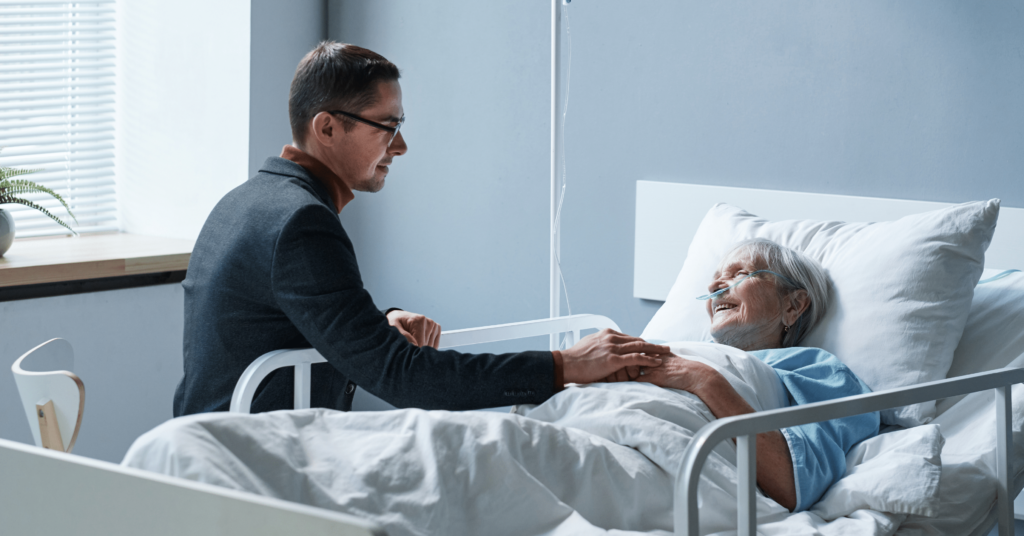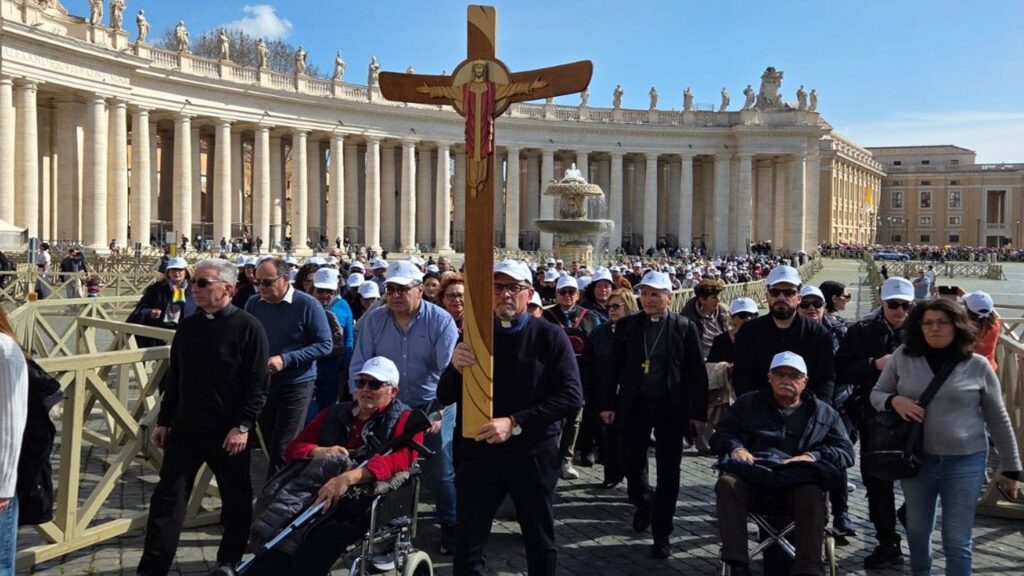The chronically ill and their family caregiver
The urgency of a care network

Law 41/2002 on patient autonomy has been a milestone in the history of bioethical legislation in Spain. Among other objectives, it served to recognize and protect the rights of patients.
However, this law, together with the corresponding legislation, does not cover an area that occurs more and more frequently in our society: the relationship, in the context of the home, between the chronically ill and the family caregiver.
It is surprising that such a daily social event is not regulated by any law – except the Dependency Law, whose real application is far from being effective – nor treated by any public institution.
We live in an institutional health world, highly technological and with great advances. But: Is the reality of the patient at home the same as in the hospital? Do they have the same human and material resources? What is more: Does the family caregiver have public aid to improve the care of the patient at home?
It is necessary to call attention to a reality that, sooner or later, we will all encounter, if we are not already in it. And such a situation becomes, when it occurs, radically new, so that those affected must act intuiting what to do and how, but without really knowing how to do it. Then, internal and external obstacles make the tasks to be carried out difficult.
Ignorance about how to proceed in each situation, the need to obtain material resources that facilitate care work, together with training in the implementation of appropriate interventions in each case or the psychological and emotional support of the caregivers themselves and their environment, justify the urgency of implementing training processes for caregivers, even for all interested parties, by the relevant public institutions.
Indeed, and from my own experience, one has to learn from scratch, and not immediately, because from the moment the patient enters into a situation of vulnerability that generates dependency, until his family environment assimilates the new situation and begins to adapt to it, some time passes.
It is a fragile space and situation that, therefore, needs multidisciplinary help so that the accompaniment of the dependent can become an edifying and not destructive experience, both for the dependent and for his/her caregivers, where the means, interventions and attitudes are implemented that give meaning to the act of caring and allow the dependent and his/her environment to feel accompanied and relieved.
And this is so because among the functions of the main caregiver, feeding the sick family member can be included (even in pathologies where the treatments have as a side effect not being hungry or, even, when eating means for the patient to feel very bad), hygiene, mobilization, administration of the prescribed medications or the application of other prescribed treatments.

Thus, it appears, many times as a new situation, an enormous task that requires time, physical and mental effort, management of emotional tension and, ultimately, reformulating the lifestyles of the family environment that must be gradually adapted to the needs and possibilities of the dependent and vulnerable.
For their part, public institutions, except for Home Care and Primary Care in Health Centres and, on the other hand, local Social Services, are clearly deficient in providing help to family carers, both material and human. They are usually provided, on an ad hoc basis, in chronic processes that require continuous and frequent attention.
In addition, the main carer frequently faces the impossibility of continuing his work activity given the need to care for the patient in his care, for which at least sick leave should be enabled for this reason, prior to corresponding and pertinent accreditations to demonstrate the real situation that is experienced.
We insist that we must not forget the fact that the problem of the chronic patient, in addition to the inherent and obvious ones of the disease itself, is chronicity.
And what a patient, in this case, chronic, demands, among other things, is time; and not your time, but his time, the calculation of which differs considerably. According to the RAE, the verb to attend comes from the Latin “assistere”, which means “to stop next to”.
As the disease progresses, there will be moments of fragility in the primary caregiver and in his or her family, moments in which care must also be extended to all of them. And this new need also requires a roadmap: means, procedures, trained people, expert help… Hence, the need for secondary caregivers.
The relationship between the chronically ill person, the primary caregiver and his or her family environment, therefore, is a complex situation of need that, unfortunately, still lacks effective protection and help from both the Administration and private goods and services.
It is therefore urgent to create a Care Network that offers the possibility of converting care for the sick in the family environment into an opportunity for mutual growth and donation that dignifies life even in its most vulnerable phases.
David Guillem-Tatay – Julio Tudela – Bioethics Observatory – Life Sciences Institute
Related

Holy Week 2025 at the Vatican: Calendar. Faith, Tradition, and a Long-Awaited Canonization
Exaudi Staff
02 April, 2025
1 min

Young Catholic Entrepreneurs: Stories of Faith, Courage, and Business Success
Javier Ferrer García
02 April, 2025
4 min

Echoes of the Jubilee of the Missionaries of Mercy
José María Montiu de Nuix
02 April, 2025
4 min

Discover Your Vocation: The Divine Path to a Full and Holy Life
Patricia Jiménez Ramírez
01 April, 2025
5 min
 (EN)
(EN)
 (ES)
(ES)
 (IT)
(IT)

